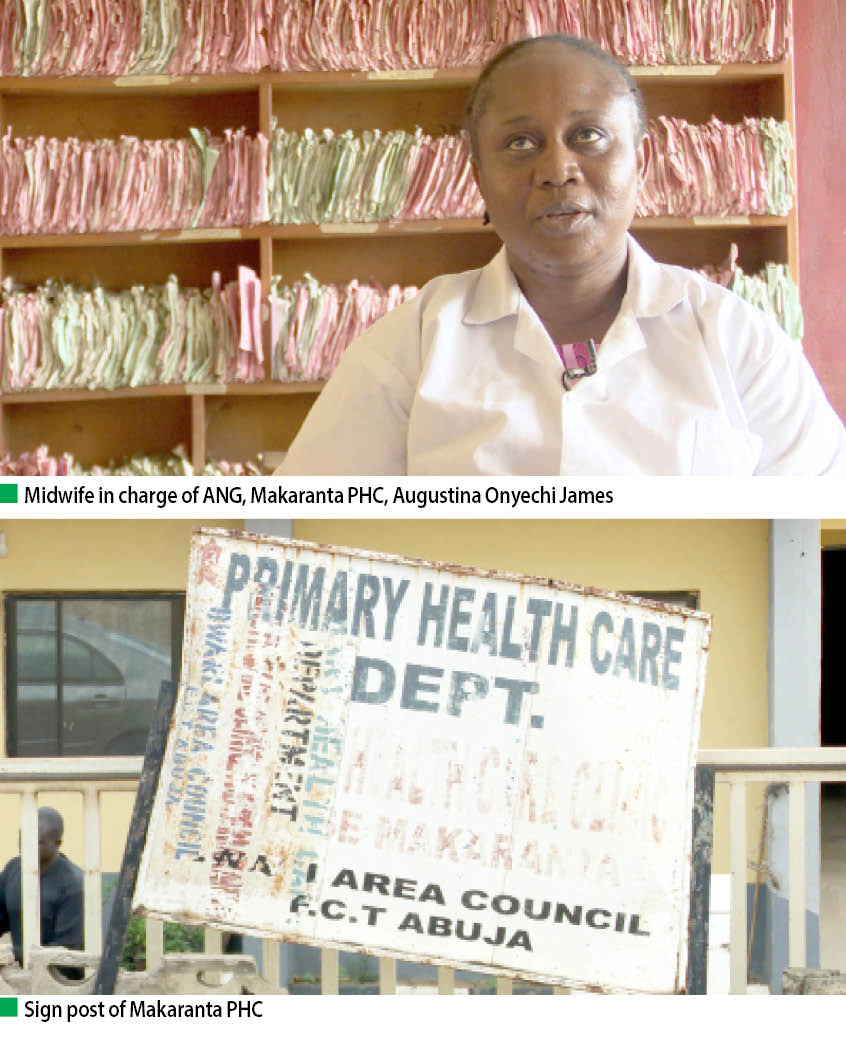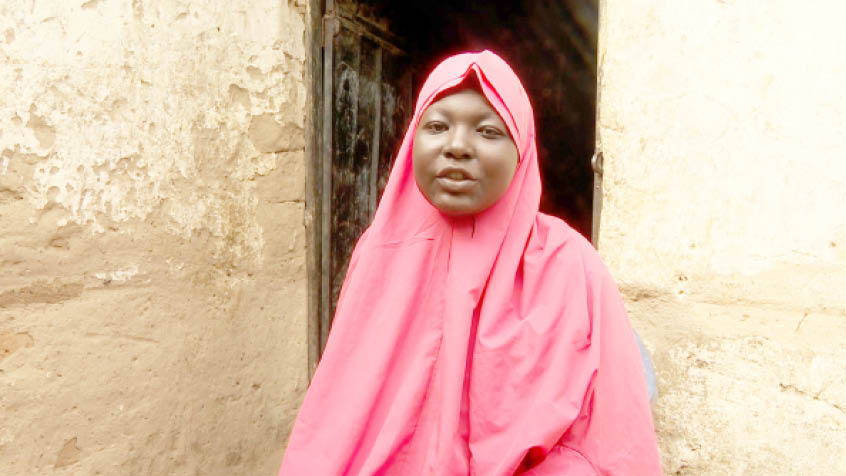While the rising cost of living is having an impact on aspects of livelihoods, the current reality is said to hinder some expectant mothers from enrolling for necessary antenatal care services.
The 2022 Multidimensional Poverty Index (MPI) survey for Nigeria revealed that 133 million people are multidimensionally poor; this figure reflects the condition of 63 per cent of the country’s about 200 million population.
In this report, Daily Trust examines how the increase in prices of services across the country potentially hinders access of antenatal care for pregnant women within the FCT.
Contrary to the World Health Organisation WHO’s recommendation of a minimum of eight visits and contacts with health services for pregnant women globally, Aishatu Umar, a seven months pregnant mother of one is yet to establish one visit to any health care facility for Ante-Natal Care (ANC).
Tinubu appoints Yayale, Yuguda, Jega, others into varsities’ governing councils
Oba of Benin receives 2 looted ancestral stools from Germany
Living in the intricate alleys of Karmajiji, a community about one kilometre away from the city gate and located behind the military cemetery along the airport road in Abuja, the 24-year-old mother of one laments her inability to enrol for antenatal services on the significant increase in the price of registration at the primary healthcare facility closest to her.
Aishatu, who is not a first-time mother, recalled the birth of her first son who is now two years old, stating that registering for antenatal at the time, was not out of reach as it was N1,000.
According to her, the cost for registering for prenatal care in the nearest primary health care centre to her is now N5,000, which her husband cannot afford at the moment.
Sadly noting that she is not alone in this dilemma, Aishatu pointed to her neighbour who is also heavily pregnant but cannot access antenatal care services due to its increased cost.
Still lamenting her current economic reality, Aishatu detailed how the inability to continue paying for their small rented apartment forced her, her husband and their son to move in with her aged parents who can barely provide for themselves.
She added that despite the menial jobs her husband does, they barely have enough to feed.
When asked how she manages ill health without professional prenatal care, Aisha said that she would “usually buy paracetamol and take” anytime she feels unwell.
Note that the WHO in its guidelines for self-medication, especially in the context of pregnant women defined self-medication as the selection and use of medicines by individuals to treat self-recognized illnesses or symptoms; this includes the use of over-the-counter drugs, medicinal plants, herbal products, and vitamins without a medical or dental prescription.
It also states that self-medication poses specific risks due to the potential for harm to both the mother and the developing foetus. However, medications that are otherwise safe can have different effects during pregnancy.
Seemingly ignorant of the consequences of her actions, she further expressed her delivery plan; “I intend to give birth to my baby at home because there are people here who can help deliver my baby, like my mother and relatives. Though they are not professionals, I am praying that my delivery will not come with complications.”
Attesting to the possible risks of her involuntary action, the expectant mother added that though she is “not unaware of some of the risks that lack of antenatal care poses to both mother and baby because I have heard stories of complications that might require a woman to undergo caesarean session at the point of delivery and some women even die.” But her trivializing tone wished the grievous thought away with a hope that her case would be different.
Aishatu is not the only one
A 2023 report by WHO had placed Nigeria second highest in terms of maternal, stillbirth, and neonatal deaths in the world followed by India. It was estimated that about 540 women and children per 1,000 die in Nigeria. Though many factors have been attributed to this high number, reports suggest that antenatal care has played a key role in reducing the trends of maternal mortality globally.
While attesting to a reduced enrolment for antenatal care at the Dutse Makaranta Primary Healthcare Centre, Bwari area council in Abuja, the midwife in charge of ANC, Augustina Onyechi James, said that fewer women are attending antenatal at the centre than they had the previous year.
“Last year, we had over 200 women registered for antenatal but with the current economic reality, the number has reduced, we only have about 100.”
“Though we have been doing outreach to meet these women and talk to them about the importance of ANC, sometimes we meet heavily pregnant women who tell us they could not register because they do not have money. Even though we still encourage them to try and come to the hospital, some of them insist they do not have any money,” she said.
Saddened by the decision of some pregnant mothers to self-medicate without seeking professional help, Augustina added that they end up spending more than they would if they had registered in a hospital and sometimes when they are brought to the hospital as emergency cases.
“The money they spend in total when they come to the hospital is not more than 10,000 to 15,000 naira.
The cost of ANC in some Abuja Primary Health centres
Our correspondent, who interacted with some pregnant women and nurses at selected primary healthcare centres (PHC) within the FCT, found out that the prices for registering for ANC differed from one centre to another.
In Dutse Makaranta, Augustina said that the cost for registering in their facility is averagely N1,500, but with other additions like tests, scans and cards the price could maximally range between N2,500 and N3,000. She added that “there are some facilities that access the Basic Health Provision Fund from the government, which helps to subsidize the cost for expecting mothers in those facilities, because they only need the money for when they come to do laboratory tests. Then there is this free Multiple Micronutrient Supplementation-MMS that the government is providing but if it is not available, they will buy the Iron and Folic Acid Supplementation-IFAS, which is as low as N500, but some people will tell you that they cannot afford N500.”
She however acknowledged that the current economic situation in the country has also impacted on the prices of some of their services, causing an increase.
Aisha Umar also told us that upon inquiry at the AMAC primary healthcare facility in Karmajiji, the price is N5,000.
A pregnant woman currently attending ANC in Aleyita PHC, under Kabusa District of AMAC said she registered with N5,000. Meanwhile, another expectant mother registered for ANC in Galadimawa said registration cost her N3,500. While both pregnant women pleaded anonymity for fear of being singled out, it reveals that the costs for ANC in primary healthcare centres across the FCT differ.
Is ANC free?
While some aspects of antenatal services in government-run hospitals are said to be free, the cost of delivering some of the non-subsidized services in such hospitals has been affected by the current economic reality, said Augustina.
Alhassan Yahaya, who is a reproductive health advocate in Gombe State, affirmed that ANC in primary healthcare centres is not free, though he added that in the past, women enjoyed free ANC services in some parts of the country, but it is no longer so.
“There are facilities that still benefit from free services courtesy of Basic Health Care Fund; which is given to vulnerable people who enjoy both primary and secondary health care for free.”
To achieve a low maternal mortality rate, Nigeria alongside other countries in sub-Saharan Africa, in 2011, made antenatal, delivery care, and postnatal care, including Caesarean section, free for pregnant women across states.
While affirming the free care services in the country at the time, nurse Augustina recalled a period when she enjoyed free services at a government hospital in Abuja, under the “safe motherhood programs, when I gave birth to my son.”
In 2019, Plos One, an online platform in its research on the impact of antenatal care in sub-Saharan Africa indicated the importance of antenatal care visits, which according to their findings reduces the risk of neonatal mortality by 39 percent in the region.

 Join Daily Trust WhatsApp Community For Quick Access To News and Happenings Around You.
Join Daily Trust WhatsApp Community For Quick Access To News and Happenings Around You.

